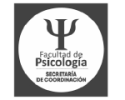The DSM-5 defines ADHD as a chronic neurologic-based behavior disorder characterized by a persistent pattern of inattention and/or hyperactivity and impulsivity. Hyperactivity and inattention interfere with cognitive functioning and participation in various activities, including school ones. The symptoms of ADHD are hypothesized to cause learning deficits in school, particularly in learning to write, read and calculate. The various treatment hypotheses include behavioral interventions and pharmacological support. Recent technological advances have shown the usefulness and potential of virtual reality (VR) as a hypothesis for intervention with neurodevelopmental disorder. In this regard, the aim of this study was to evaluate the effectiveness of use as children with ADHD. In a previous study we have already validated our idea by investigating how virtual reality has enabled faster learning in ADHD subjects than traditional training. After expanding the sample, in this study we compared two training courses (one traditional and one via VR), developed for learning history in children with ADHD. After having subjected the participants to the classical training and to the one with VR, our results exceeded a better learning than the starting condition. Furthermore, our analysis found that the group that performed the VR training performed better than the group that did the traditional training. Our study suggests that VR technology helps effective ADHD symptom management by promoting improvement in traditional treatment and learning options.
Research linked to Nesplora that is included within its references:
Frolli, A., Ciotola, S., Esposito, C., Cerciello, F., Rega, A., Ricci, M.C. (2025). Comparison of Traditional and Virtual Reality Learning in Children with ADHD. In: Di Fuccio, R., Toto, G.A. (eds) Psychology, Learning, Technology. PLT 2022. Communications in Computer and Information Science, vol 2089. Springer, Cham. https://doi.org/10.1007/978-3-031-81706-9_11












Este proyecto ha recibido financiación de la Unión Europea del programa de investigación e innovación
Horizon 2020 bajo el acuerdo Nº 733901
© 2025 Nesplora S.L.